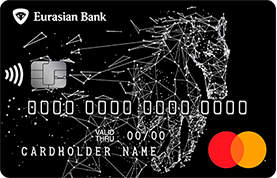Digital fraud in Kazakhstan is reaching a new level — attackers are now operating not only through phishing and fake websites, but also building whole scenarios in which the victim is led step by step, forcing his/her to voluntarily part with the money.
How the schemes work
In one case, a resident of Petropavlovsk, wanting to improve his financial situation, decided to participate in alleged “stock market games”. At first glance, everything looked convincing: an “investment manager” contacted him, helped him register on the platform, where the growing dollar amount was displayed in his personal account. After making sure that the “income” was growing, the man transferred 19 million tenge. However, when he tried to withdraw the money, the “investors” disappeared.
The scheme that a resident of Almaty got into turned out to be completely different, but not less dangerous. It all started with a harmless call allegedly from a telecommunications operator: she was informed that she needed to extend the term of her SIM card, and they sent her an SMS code that she needed to dictate. This was followed by a series of calls — “bank employee”, “National Bank specialist”, “cybersecurity unit”. The woman was informed that loans had already been issued for her and now it was urgently necessary to submit “counter requests” so that the system would cancel both. She issued a loan, withdrew the money and, according to the instructions, transferred it to the specified account, confident that she was involved in saving her own funds.
They didn’t let her out of communication all day — they convinced her that she shouldn’t hang up, “otherwise scammers will get access”. It later turned out that all this was part of a carefully crafted fraudulent scheme. The girl was left with a debt of 7 million tenge and the hope of assistance from the investigation.
In the Akmola region, a man faced a similar story. First, the man received a call from a foreign number, introduced himself as a PSC employee and informed him that important documents had been received in his name. To allegedly gain access to them, the attacker asked to dictate the code from the SMS. Then he was contacted by the “bank”, then by the “police”. He was convinced that loans had been issued in his name, and now it was necessary to “cancel applications” through the installation of applications from eight banks. At the last stage, a uniformed man contacted him via video call and demanded him to strictly follow the instructions. As a result, the man transferred 9 million tenge, the money he was trying to protect from alleged fraudsters.
All these cases have one thing in common: the victims were not inconsiderate or gullible. On the contrary, they tried to do the right thing — to save their money, protect their account, and follow the instructions of the “official authorities”.
This is precisely the new danger: scammers have learned to imitate formality and security, using psychological pressure, urgency, and a plausible cover story.
Eurasian Bank reminds you: do not trust calls from unknown numbers, do not make decisions in a hurry and always check information through official channels.
Be careful, share this information with your loved ones and never make financial decisions under pressure.





